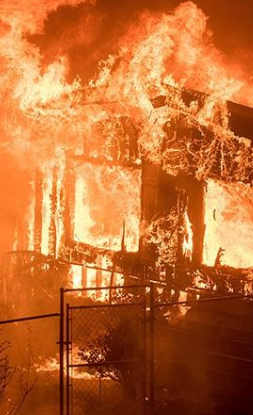Councils back bushfire report
 NSW councils say they have been supported in their calls for greater natural disaster resilience.
NSW councils say they have been supported in their calls for greater natural disaster resilience.
The findings of the Royal Commission into National Natural Disasters Arrangements were released this week, following a review of the Black Summer bushfires, which stretched many of the State's councils to their limits.
Local Government NSW (LGNSW) says the Commission's 80-plus recommendations align with the lobby group’s submissions to the Commission earlier this year.
“The Royal Commission found natural disaster is a growing risk due to changing global climate conditions, with disasters expected to become more complex, unpredictable and difficult to manage,” Cr Scott said.
“NSW's Black Summer showed local councils are at the forefront of dealing with that risk.
“Councillors, Mayors and council staff were involved in every component of the disaster response from providing support and services to their communities to serving on the frontlines as volunteer fire fighters.
“It's great news that the Royal Commission has acknowledged the importance of a locally-led response, and the need for state governments to ensure councils have sufficient resources to effectively discharge the responsibilities devolved to them.”
Cr Scott said reducing the risk of natural disaster and building community resilience is a responsibility shared by all tiers of government.
“The Commission also supported our call for the better incorporation of 'build back better' principles into Disaster Recovery Funding Arrangements, with streamlined application processes,” she said.
The Royal Commission also highlighted the reliance of local governments on the ability to access a 'surge capacity' during disasters and identified a pressing need for the State Government to review existing arrangements around the sharing of council resources.
Recommendations welcomed by LGNSW included the need for improvements to data sharing, mobile broadband capability, use and understanding of Australian Defence Force resources, community education and engagement, management of donated goods and increased investment in mental health support following natural disasters.







 Print
Print